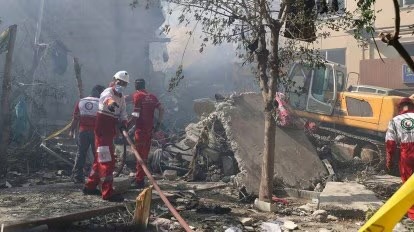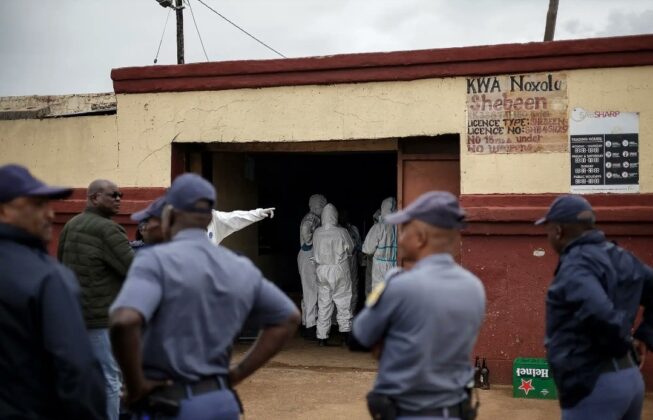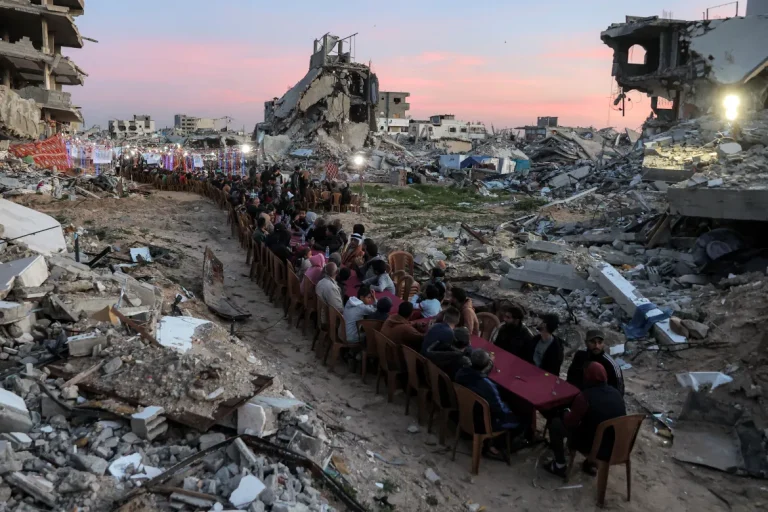
Smoke rises over northeast Tehran after an Israeli airstrike hit the Shahid Chamran Nobonyad Complex, killing at least 60 people, including 20 children. image: AP Photo
(The Post News)- The already volatile confrontation between Iran and Israel has entered a dangerously unstable phase, as Tehran issued an explicit threat to the United States, the United Kingdom, and France. The message: any effort to obstruct Iran’s military operations against Israel will trigger retaliatory strikes against Western military bases and naval forces stationed across the region. Delivered via state media, this warning reflects not only Iran’s growing resolve in the face of Israeli aggression but also its readiness to widen the scope of the conflict.
The threat was issued in the aftermath of a devastating Israeli airstrike on the Shahid Chamran Nobonyad Complex in northeast Tehran, a residential area reportedly linked to the Ministry of Defense. The attack, one of the deadliest in recent memory on Iranian soil, killed at least 60 people, including 20 children. The images of destruction, coupled with rising civilian casualties, have inflamed public sentiment and intensified pressure on Iranian leadership to respond forcefully.
The situation within Iran is also becoming increasingly tense. Security forces arrested five individuals in the central city of Yazd, accusing them of espionage and collaboration with Israel. These arrests underline the government’s concern over internal threats and suggest a sweeping crackdown on perceived dissent or foreign influence. Such internal measures may become more pronounced as the country enters a wartime posture.
Military losses have also struck a blow to Iran’s command structure. Iranian state media confirmed the deaths of two senior military officials Gen. Gholamreza Mehrabi, deputy head of intelligence, and Gen. Mehdi Rabbani, deputy for operations in Israeli strikes earlier this week. Their deaths represent a significant disruption to Iran’s military coordination at a critical time.
Tehran’s threat to attack Western military assets marks a major shift in rhetoric and strategy. The inclusion of the UK and France alongside the US signals Tehran’s growing belief that European powers may become more than just diplomatic actors and instead military participants, particularly if Israel requests support or if Western forces act preemptively.
This warning has placed US, British, and French forces in the Middle East on high alert. All three countries maintain military bases, ships, and personnel throughout the Persian Gulf, Iraq, Syria, and other strategic locations. Any direct confrontation between Iranian and Western forces would fundamentally alter the nature of the conflict and could draw NATO powers further into a regional war with global implications.
As world leaders call for restraint , the cycle of retaliatory violence continues to escalate, and diplomatic solutions appear increasingly distant. Both Israel and Iran remain defiant, with domestic political pressures and long-standing grievances fueling their determination to act militarily rather than negotiate.
The risk of miscalculation is now dangerously high. A single misstep, a strike too far, or an intercepted missile gone astray could trigger a chain reaction involving multiple nations, economic fallout, and potentially devastating consequences for civilian populations across the region. The coming days will be critical in determining whether this conflict can be contained or whether it erupts into a broader war involving some of the world’s most powerful militaries.



